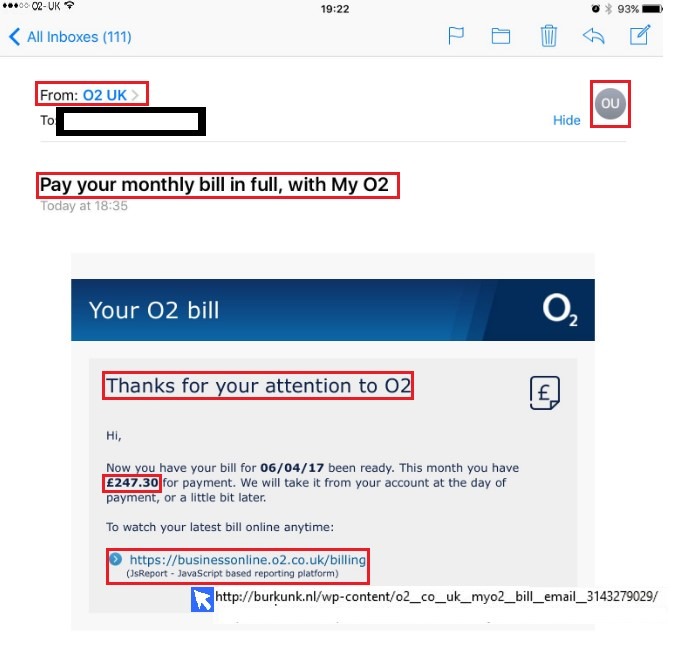Warning: Vodafone/O2 Phishing Emails
Across the UK, Vodafone and O2 customers have been receiving various phishing emails. Phishing emails are types of emails usually sent by hackers who impersonate organisations in order to acquire your personal information or to spread a virus to your device.
Below is an example of a Vodafone phishing email:
Below is an example of an O2 phishing email:
Both emails are clearly designed by malicious hackers to panic recipients into clicking the link to see how they’ve run up such a large bill.
How can you identify a phishing email?
We always recommend that you check the sender of the email. For example, this email above is from “Vodafone 0nline [mailto:montaz@electro-welle.pl” which is NOT a legitimate Vodafone email. Typically, a Vodafone email will always end with the domain @vodafone.co.uk, @vodafone.com or @help.vodafone.co.uk such as noreply@help.vodafone.co.uk. While the official O2 weblink for checking your bill is http://www.o2.co.uk/myo2.
Further warning signs include poor spelling, a strange address which is unusually long and full of special characters, letters and numbers, such as ‘1xxhshf3843334ghh’.
You can also hover your mouse over the link to see the address:
What to do if you receive a phishing email
We strongly advise that any suspicious emails you receive are deleted immediately, and any links are not opened. If you have clicked on any links, please conduct a virus scan on your device.
We have reported this email to safeguard our customers and are here for you to get in touch if you receive an email of this nature or have any questions. You can do so via email: support@cmmtelecoms.co.uk or phone 01252 854352. We are always more than happy to help.



